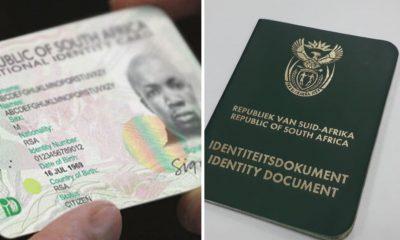411
SITA Showdown: Political Infighting Over Government IT Sparks Urgent Calls for Reform

The South African Information Technology Agency (SITA), a state-owned entity meant to drive digital services in government, is increasingly being seen as a major roadblock to progress.
Designed to centralize IT service delivery across departments, SITA has instead become synonymous with system crashes, missed deadlines, corruption allegations, and chronic inefficiency. From Home Affairs’ infamous system downtimes to widespread procurement issues, frustration is mounting within government—and the private sector is starting to speak out.
A December 2024 report to the Portfolio Committee on Communications laid bare the dysfunction, prompting Communications and Digital Technologies Minister Solly Malatsi to propose regulatory changes. His goal? To let government departments source IT services outside of SITA—provided they make a strong business case aligned with public procurement rules.
The idea has support from several departments, including Home Affairs and the South African Police Service, both of which believe their operations could dramatically improve with more reliable digital systems. Yet political resistance threatens to derail the plan.
Politics Over Progress
Parliamentary resistance has emerged, with Khusela Diko, Chair of the Portfolio Committee, arguing the proposal violates the SITA Act and could “fragment” government services. Malatsi, however, insists the plan is legal and already has Treasury’s blessing.
“The regulations enjoy overwhelming support from ministers in the Government of National Unity and provincial governments,” Malatsi said. “They empower departments to take control, cut costs, and speed up delivery.”
The Bigger Picture
The debate isn’t just technical—it’s political. And to many business leaders, it’s deeply concerning.
Busi Mavuso, CEO of Business Leadership South Africa, has slammed the impasse as political game-playing that South Africa cannot afford. In her view, SITA is holding the country back from becoming a modern, capable state.
“SITA is a fundamental constraint on the public sector’s ability to embrace technology,” said Mavuso. “Government needs world-class IT systems. That’s non-negotiable.”
She pointed to the South African Revenue Service (SARS) as proof that digital transformation is possible—and game-changing—when executed properly.
Reform vs Replacement
Mavuso supports giving departments the right to bypass SITA but warns that this won’t be a silver bullet. Many entities lack the capacity to go it alone, meaning SITA must be reformed to remain a viable option—and face competitive pressure to improve.
“Let departments choose,” she said. “If SITA is good enough, they’ll pick it. If not, they won’t. That’s how we drive real accountability.”
Ultimately, she said, the stakes are too high for South Africa’s IT backbone to be reduced to a political football. With the world moving rapidly toward AI, blockchain, and platform-driven public services, South Africa risks falling further behind if it can’t fix its digital infrastructure.
The fight over SITA is more than a bureaucratic battle—it’s a test of South Africa’s commitment to efficient, accountable governance. Whether through reform or competition, the country must find a way to ensure that technology serves the people, not politics.
{Source: BusinessTech}
Follow Joburg ETC on Facebook, Twitter , TikTok and Instagram
For more News in Johannesburg, visit joburgetc.com



























